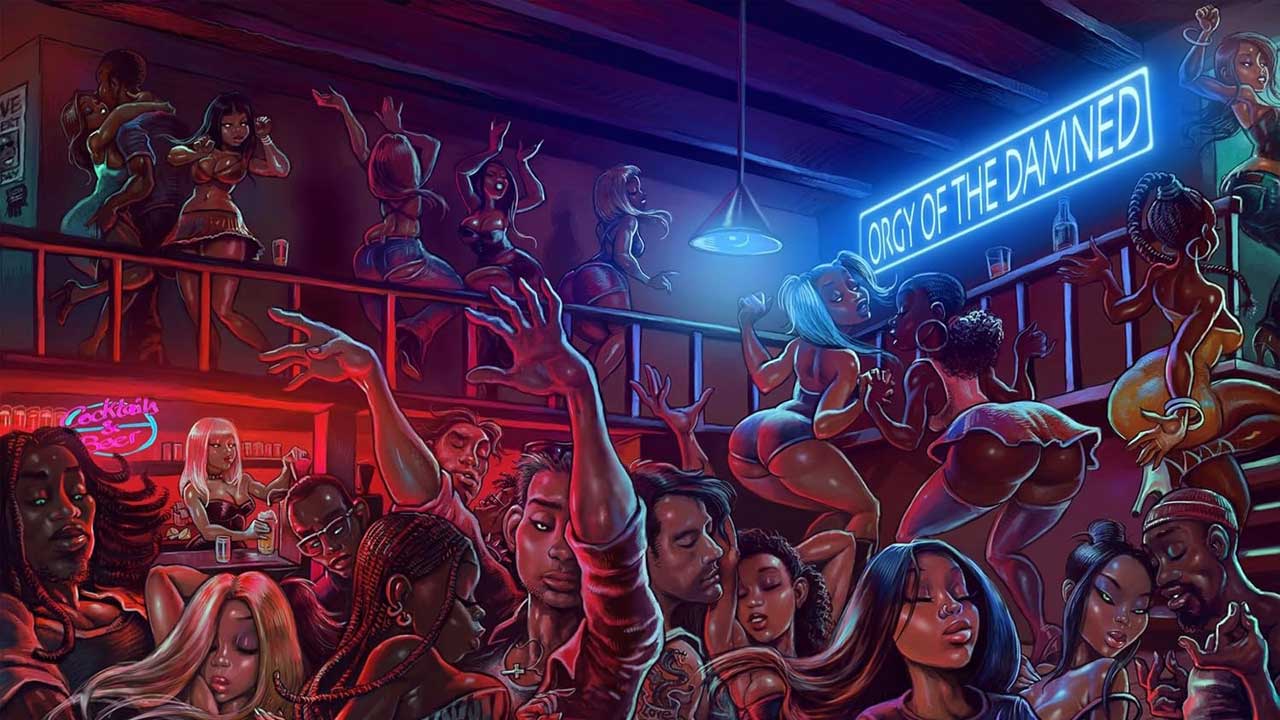
For most artists, releasing a covers album is a time-buyer, a moment to recharge the songwriting batteries and, if we’re being benign, to pay tribute to childhood musical loves. Slash, though? It’s not quite the same. It can’t be when you’re not a singer and you’ve got a certain band hovering over you like a money-generating albatross.
With the best will in the world, Slash Featuring Myles Kennedy & The Conspirators couldn’t have set the world alight even if they’d all been registered pyromaniacs. They’re notably absent here, as are any of Guns N’Roses, although Orgy Of The Damned’s keyboard player Teddy ‘Zig Zag’ Andreadis toured with GN’R, and he and bassist Johnny Griparic were part of Slash’s Snakepit and Slash’s Blues Ball. Curiously, for all the baggage shedding, Orgy Of The Damned is produced by Mike ‘Appetite For Destruction’ Clink.
Rather like Slash’s self-titled album of 2010, it’s a collection of tracks with different singers. Unlike the Slash album, though, it’s overwhelmingly old songs, a collection of blues-ish covers, plus a new instrumental, Metal Chestnut. The vocalists (only Iggy Pop sang a song on Slash) come and go.
Beth Hart’s sub-Janis Joplin take on Stormy Weather is unbearable, and Paul Rodgers is too predictable on Born Under A Bad Sign, but Chris Robinson sounds about 100 years old on a fabulously grizzled take on The Pusher, Billy Gibbons glides over Hoochie Coochie Man, and Brian Johnson does his best Tom Jones on Killing Floor. And Chris Stapleton outsings them all on Oh Well.
As is only right and just, Slash is the star of his own show, and he’s chosen material to showcase his guitar pyrotechnics. He dominates every track, whether sizzling on Steve Wonder’s Living For The City or crashing through Crossroads like the hoariest of hoary bluesmen.
As a student of guitar history, Slash must know that in 1966 London was first alerted to the majesty of Jimi Hendrix, via Howlin’ Wolf’s Killing Floor. When Eric Clapton and assorted Beatles and Stones saw Hendrix play it at Central London Polytechnic, they instantly upped their guitar game. Slash’s version channels (without impersonating) Hendrix, and adds supercharged riffs and duels with Steven Tyler’s grandstanding harmonica. He’s adding to history as well as making it.
Slash is a sideman rather than a main man, and his solo career has always been troublesome, but it looks like he’s found a way ahead here.







